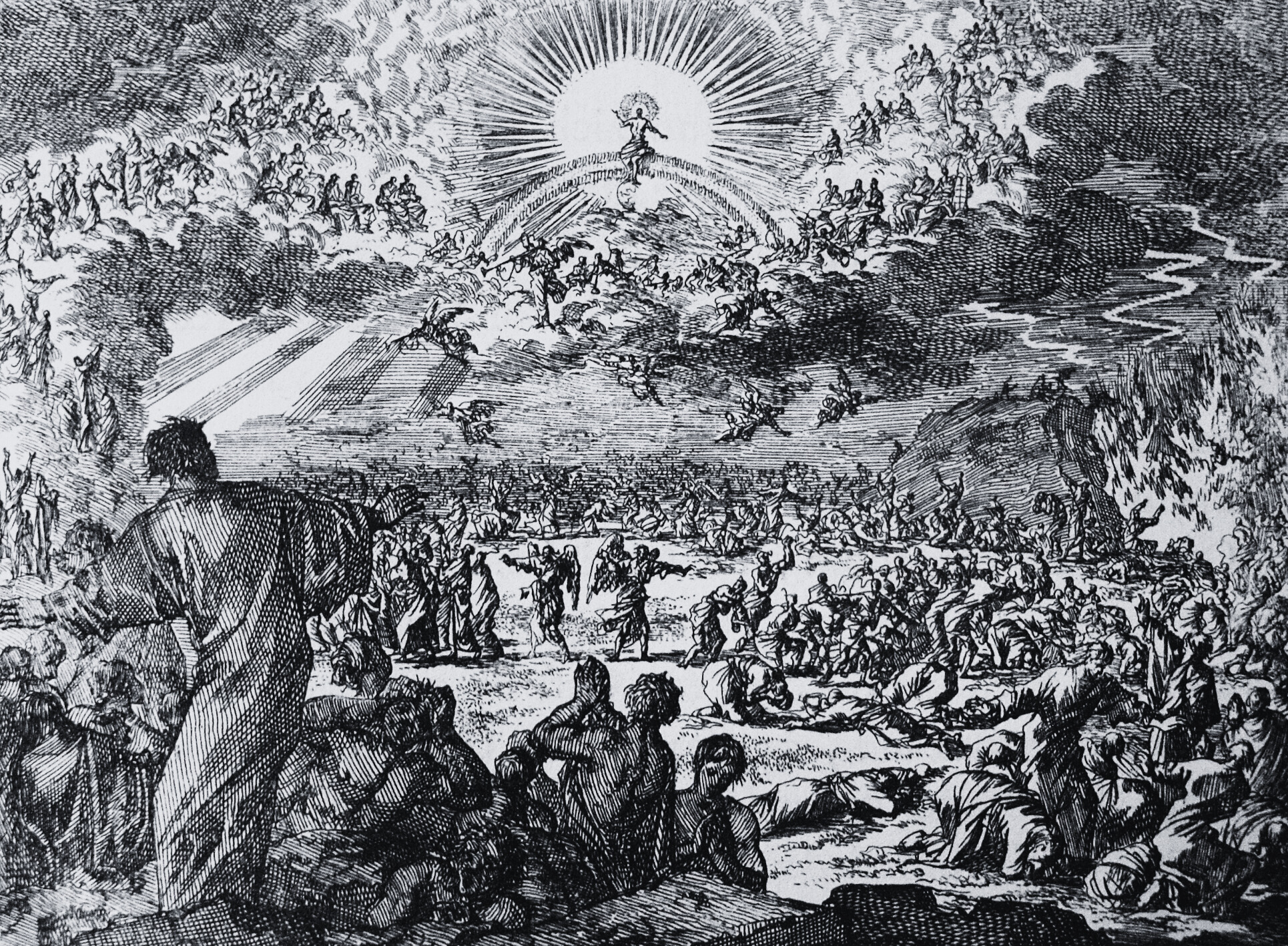What “The Day of The Lord” Refers to in Sacred Scripture?
By Clement Harrold / April 5, 2024

“Day of the Lord” is a term which crops up from time to time in the Bible, but what does it mean exactly? In the Catholic Bible Dictionary, biblical scholar Scott Hahn explains that the day of the Lord “expresses the eschatological hope that the Lord’s overwhelming power and glory would be manifest in history, but also the dread of a divine reckoning” (p. 201).
Put another way, the day of the Lord is used in Scripture to refer to a coming time of divine judgment. For example: “Wail, for the day of the Lord is near; as destruction from the Almighty it will come!” (Is 13:6). This helps explain why the expression “day of the Lord” often comes across as a rather ominous event: “Is not the day of the Lord darkness, and not light, and gloom with no brightness in it?” (Amos 5:20).
Here it is also important to recognize that the day of the Lord is used by the biblical authors to describe both proximate and eschatological events. Proximately, it pertains to moments in history when the power and judgment of God will be made manifest. Hence the destruction of the First Temple in B.C. 586 and the destruction of the Second Temple in A.D. 70 are both sometimes treated as manifestations of the day of the Lord.
More fundamentally, however, the day of the Lord should be understood eschatologically as referring to the Last Judgment when Christ will return to the earth. Indeed, the implication in Scripture is that the two Temple destructions are merely prefigurements of that final and definitive day of the Lord which will take place at the end of time.
Given that it is evil men who often dominate this world, the day of the Lord is ultimately a positive reality in Sacred Scripture. In the prophets who preach following the destruction of the First Temple and the exile of the Jewish people in Babylon, for example, the term comes to express not only their expectation of God’s judgment on the wicked, but also their confidence in His salvation of the just.
The day of the Lord thus appears to the souls of the just as something at once sobering yet consoling. It is sobering because God’s judgment can be terrible, and His power is unrivaled: “The sun shall be turned into darkness and the moon into blood, before the day of the Lord comes, the great and manifest day” (Acts 2:20). It is also a stark reality that we must always be prepared for, since we have been warned that “the day of the Lord will come like a thief in the night” (1 Thess 5:2).
And yet, if we remain close to Christ in all humility and love, then we have nothing to fear. For the day of the Lord will be the perfect manifestation of God’s supreme justice and mercy. In the words of the prophet Isaiah: “And the haughtiness of man shall be humbled, and the pride of men shall be brought low; and the Lord alone will be exalted in that day” (Is 2:17).
Further Reading:
“Day of the Lord” in Scott Hahn, Catholic Bible Dictionary (Image: 2009)
What's Your Reaction?














